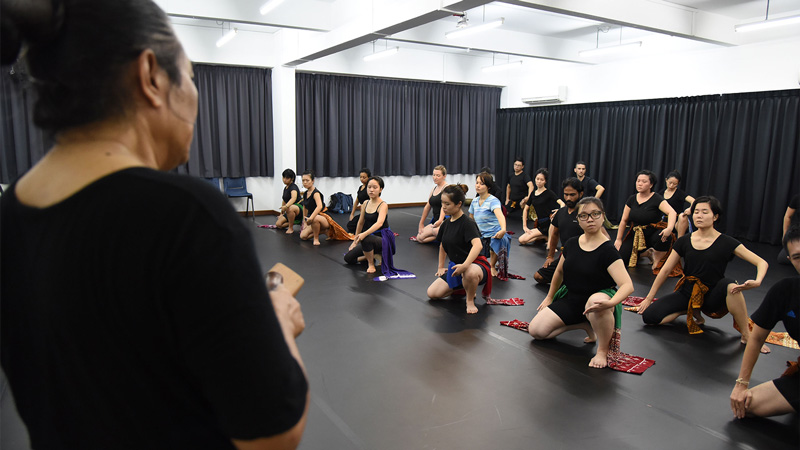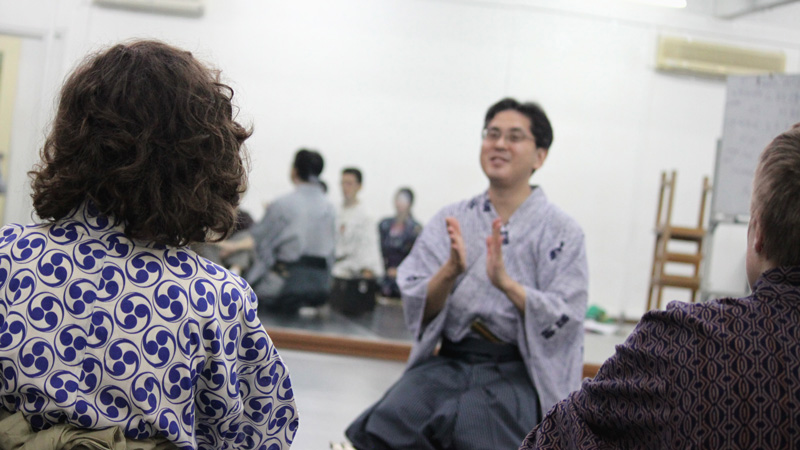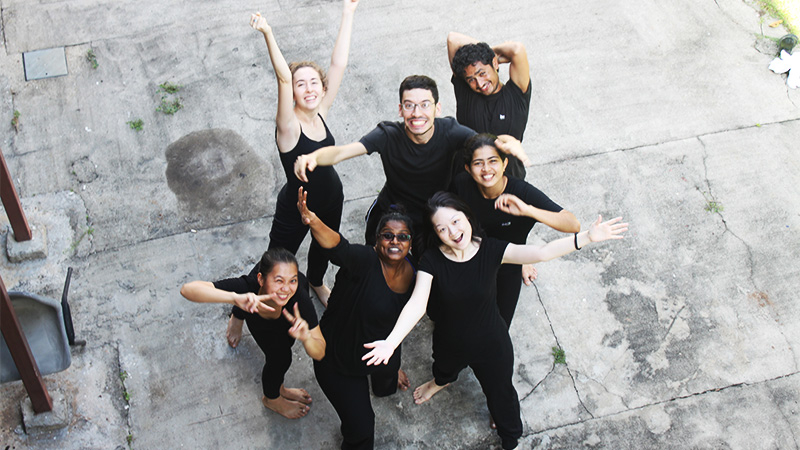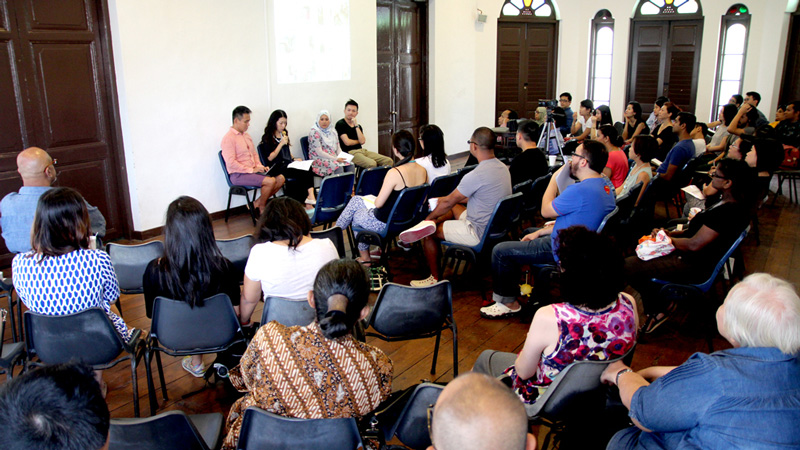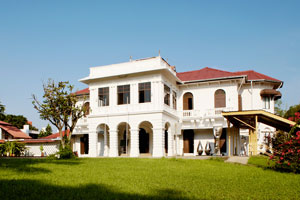Professional Diploma in Intercultural Theatre (Acting)
02 Jan 2026
Singapore
The ITI Acting Programme is a distinctive actor training programme based on an intercultural learning methodology.
The three-year, full-time rigorous programme aims to develop skills in performance and original theatre-making.
Discover our approach and objectives, distinctive features and commitment to students.
Approach and Objectives

The Acting Programme is characterised by its performer-centred, practice-oriented training that emphasises intercultural work and original creation. It immerses students in traditional theatre forms from Asia (such as Noh Theatre from Japan, Beijing Opera from China, Wayang Wong from Indonesia and Kutiyattam from India), and juxtaposes these intense interactions with both Stanislavskian and post-Stanislavskian actor training techniques. The process of skills acquisition and recombination takes place in a plural, intercultural environment marked by a variety of languages, a multiplicity of cultures and a broad, inclusive theatrical palette.
Its aim is to train professional actors and performers capable of working in a variety of contemporary theatre genres and forms. The ITI actor is skilled in stagecraft and adept at the techniques of theatre, s/he is knowledgeable about theatre, is able to maintain a personal practice, is critically aware and socially engaged, and is capable of working autonomously as a creative person or artist.
ITI recognises that life, in all its variety and diversity, and imagination are the alpha and omega of all creativity in theatre. The programme is set up as a series of dialogues — between Cultures, Languages and Forms, and between Craft and Theory, the Contemporary and the Classical, the Technical and the Imaginative, and Structure and Spontaneity.
Distinctive Features
SMALL
Designed to cater to a select number of dedicated and gifted performers from diverse cultures. Each cohort has no more than 12 students, with the teacher-student ratio ranging from 1:12 to 1:36.
SPECIALISED AND INTENSIVE
Packed with para-theatre, skills and technique training, and seminars on the humanities, arts, theatre theory and critical studies.
For the first two years, students undergo up to 50-hour weeks of training. In the third year, students focus on devising and performing public productions.
VARIED MODES OF TEACHING
These include studio work, rehearsals, workshops, field-work, research, textual analysis, demonstrations, lectures, tutorials and public, professionally-helmed performance presentations.
INTERCULTURAL AND MULTILINGUAL
Train in a diverse and plural social and learning environment. The medium of instruction is English but students are encouraged to use their native languages in their projects and presentations.
Student Testimonials

"Right after my graduation, I felt like a brand new person. Before I went back to Hong Kong, I went to Kuo Pao Kun’s grave and looked at his picture and said something like, Thank you so much, the programme drew many masters and gave me more than I could ever imagine.”
Andy Ng '03 / Q&A

"If you have decided to be an artist, you cannot see the arts lightly. You need to train rigorously like in any other professional discipline. Then, come with an open heart and open spirit. If you are passionate about theatre and you want to hone your skills, ITI is the place for you."
Pooja Mohanraj '18 / Q&A

"I’m not going to graduate to do something totally different. The difference lies in the way I will do it — with more attentiveness, confidence, faith and sense of adventure. Be ready to empty yourself and unlearn... you may need the courage to shatter your own logic to rebuild it."
Regina Foo '17 / Q&A
> Read more here.
Commitment to Students
ITI is committed to helping all students discover their unique way of training, learning and working. We will endeavour to help each student shape a personal journey towards acting and theatre-making excellence.
ITI stands on its excellent reputation, the high quality of its graduates and outstanding impact they continue to make in their communities, and the eminent faculty and partners it consistently attracts. The professional theatre communities are the final arbiters of quality.
| DOWNLOAD THE E-BROCHURE HERE |

